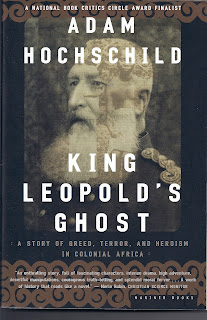Unless we are or will one day be famous, which isn't very likely, our books are devalued when we mark in them, either by underlining passages or writing notes. The used-book trade prefers that books be kept in pristine condition. Yet those marks we make in our own books may actually increase their value to us. They can remind us, years later, what we once found important in those books. They are reminders of who we were and what we were thinking at that earlier time. We can even recall the gist of a book simply by rereading what we underlined or what we wrote in the margins.
Lately I have been doing a lot of this. Several days ago I posted some passages about children and parenting that I underlined in books read back in the 1970s and 1980s. Here are a few more underlinings from books about economics, religion, literature and other topics read during the same period:

"If we are, as I would want to reason, obliged in conscience sometimes to tell white lies, as we often call them, then in conscience we might be obliged sometimes to engage in white thefts and white fornications and white killings and white breaking of promises and the like." - Joseph Fletcher in
Situation Ethics (1972)
"When I read a book that is intended (presumably) for the general public and find that I can make neither head nor tail out of it, it never occurs to me that this is because I am lacking in intelligence. Rather, I reach the calmly assured opinion that the author is either a poor writer, a confused writer, or, more likely, both." - Isaac Asimov in The Left Hand of the Electron (1972)
"Someday there will be learned theses on The Use of the Ashtray in J.D. Salinger's Stories; no other writer has made so much of Americans lighting up, reaching for the ashtray, setting up the ashtray with one hand while with the other they reach for a ringing telephone." - Alfred Kazin in Salinger (1962)
"There are no
ordinary people. You have never talked to a mere mortal." - C.S. Lewis in
The Weight of Glory (1949)

"A faith that can find no significant meaning in art and laughter, in the tragic as well as in the hilariously comic, is a faith that will find no joy in life itself." - Robert L. Short in
The Gospel According to Peanuts (1965)
"The strength of a man's virtue must not be measured by his efforts, but by his ordinary life." - Pascal's
Pensees (17th century)
"Propaganda thus serves more to justify ourselves than to convince others; and the more reason we have to feel guilty, the more fervent our propaganda." - Eric Hoffer in
The True Believer (1951)
"Most social revolutions promise a reign of the saints. Most promise a new type of moral man. And most intend to produce this higher type of morality through the coercive power of the state. This is precisely the impulse in the human heart which democratic capitalism finds to be the most productive of evil." - Michael Novak in
The Spirit of Democratic Capitalism (1982)
"The fact that the greatest advance made in woman's progress toward political equality came hard on the heels of a devastating World War was not accidental. ... Western women, in that sense, were the real winners of the century's great world wars." - Amaury deRiencourt in
Sex and Power in History (1974)
 Emerson, a New York Times war correspondent, wrote just the one novel before her death in 2004, but it is a small gem. The story tells of Molly Benson, an idealistic American woman with more money than sense. Novelist Graham Greene has recently died as the story opens, and Molly is still in mourning. She loves his books and once met the great writer. She imagines he was a close friend, although she is beginning to realize his letters to her were merely polite responses to her letters to him, nothing more. In any event, she wants to make some grand gesture in Greene's memory, and she decides to use her money to try to free imprisoned writers in Algeria.
Emerson, a New York Times war correspondent, wrote just the one novel before her death in 2004, but it is a small gem. The story tells of Molly Benson, an idealistic American woman with more money than sense. Novelist Graham Greene has recently died as the story opens, and Molly is still in mourning. She loves his books and once met the great writer. She imagines he was a close friend, although she is beginning to realize his letters to her were merely polite responses to her letters to him, nothing more. In any event, she wants to make some grand gesture in Greene's memory, and she decides to use her money to try to free imprisoned writers in Algeria.




